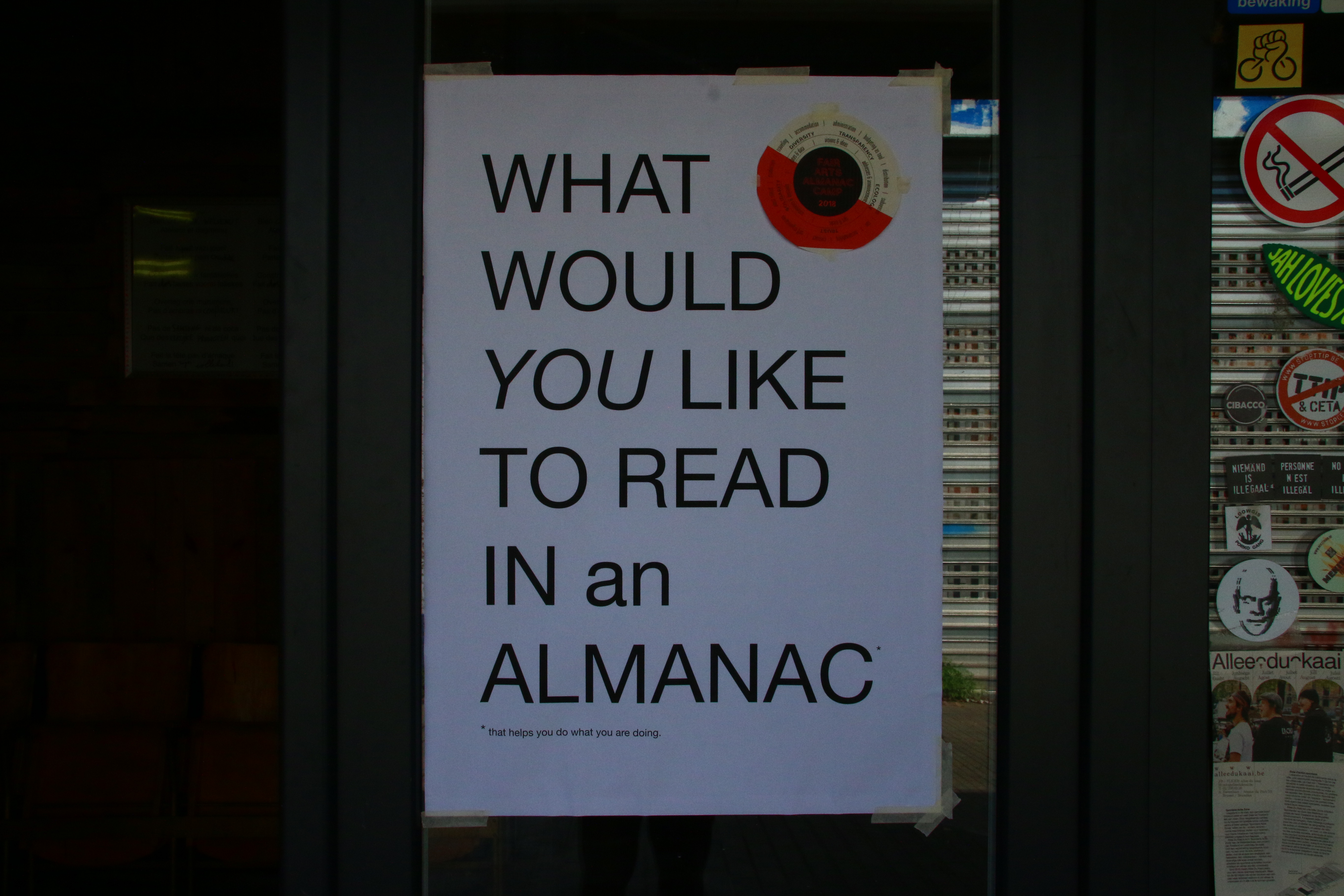The artistic community of Belgium is flourishing. It has a long tradition of making and supporting art, and as a hub for artistic research and development in Europe, it has tremendously diverse knowledge, value, and skill to offer. At the same time, however, we at SOTA observe a dramatic shift in the artistic economy and the perception of art’s value in society. In large part, this is due to popular neo-liberal politics and a reduction of state support towards social and humanistic fields (e.g. arts, healthcare, social security, education). That being said, it is true that the shift we observe is also in response to aesthetic and political developments within the field of art itself.
Nevertheless, while forcing art and the processes of it’s creation towards market-oriented production and commercialization, the popular neo-liberal politics we see ignore an intrinsic ‘market failure’ in the commercial sector and thereby create increasingly precarious work conditions for those dependent on the art sector. An increased need for multidisciplinarity, a growing interest in research in the arts, and a stronger understanding of the value of art-specific knowledge brings widespread artistic disciplines into more intimate but also more utilitarian or exploitative relationships with other fields.
This shift in the artistic economy and the value of art itself has been discussed in recent years, but still, there are no major impacts on policy or practice. Although the shift is now recognized and increasingly debated and discussed, the new balances and collective support structures that we need both in and beyond the artistic field need to be created.
As this process unfolds, many individuals working in the arts feel the need for common access to practical information about opportunities they can have to influence cultural policies, to take action and enforce the need for society’s transition towards fair practice and a diverse, transparent, supportive, and engaging art field in Belgium and beyond, so, we say: Let’s act! Now.
Let’s dare to shift paradigms.
Let’s move towards a balanced and connected artistic field.
Let’s reflect together on the links between the daily practice of art making and it’s political, philosophical, and economic underpinnings.
Let’s explore the structural potential of the arts sector in order to re-think the ways art is embedded in our world and impacting our society.
Let’s talk:

